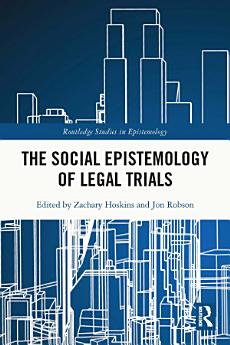The Social Epistemology of Legal Trials
About this ebook
Truth is not, however, the only epistemic value which seems relevant to how trials proceed. We may think that a jury shouldn’t convict a defendant, even one who is as a matter of fact guilty, unless its members know or at least are justified in believing that the defendant committed the crime in question. Similarly, we might reasonably assume that the trier of fact must have some level of understanding to reach an adequate verdict in any case, but legitimate questions arise as to what level of understanding should be required.
The essays collected in this volume consider a range of epistemological issues raised by trials, such as how much credence jurors should give to eyewitness testimony, the admissibility and role of statistical evidence, and the appropriate standards of proof in different contexts.
The Social Epistemology of Legal Trials will be of interest to scholars and upper-level students working on issues at the intersection of epistemology and philosophy of law.
About the author
Zachary Hoskins is an associate professor of philosophy at the University of Nottingham. He is author of Beyond Punishment? A Normative Account of the Collateral Legal Consequences of Conviction (2019) and is co-editor of The New Philosophy of Criminal Law (2016) and International Criminal Law and Philosophy (2010).
Jon Robson is an assistant professor of philosophy at the University of Nottingham. He is co-editor of Aesthetics and the Sciences of Mind (2014) and The Aesthetics of Videogames (Routledge, 2018) as well as co-author of A Critical Introduction to the Metaphysics of Time (2016).






